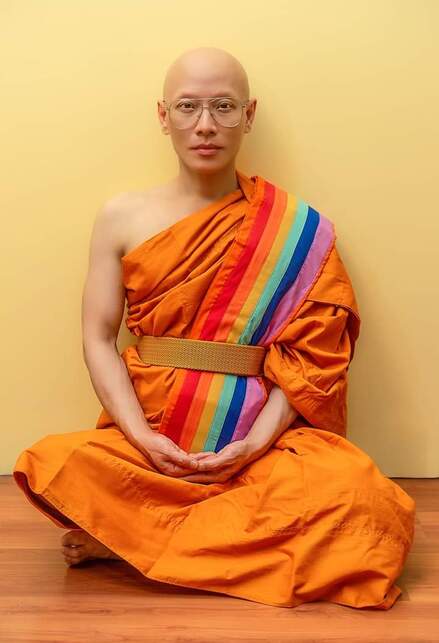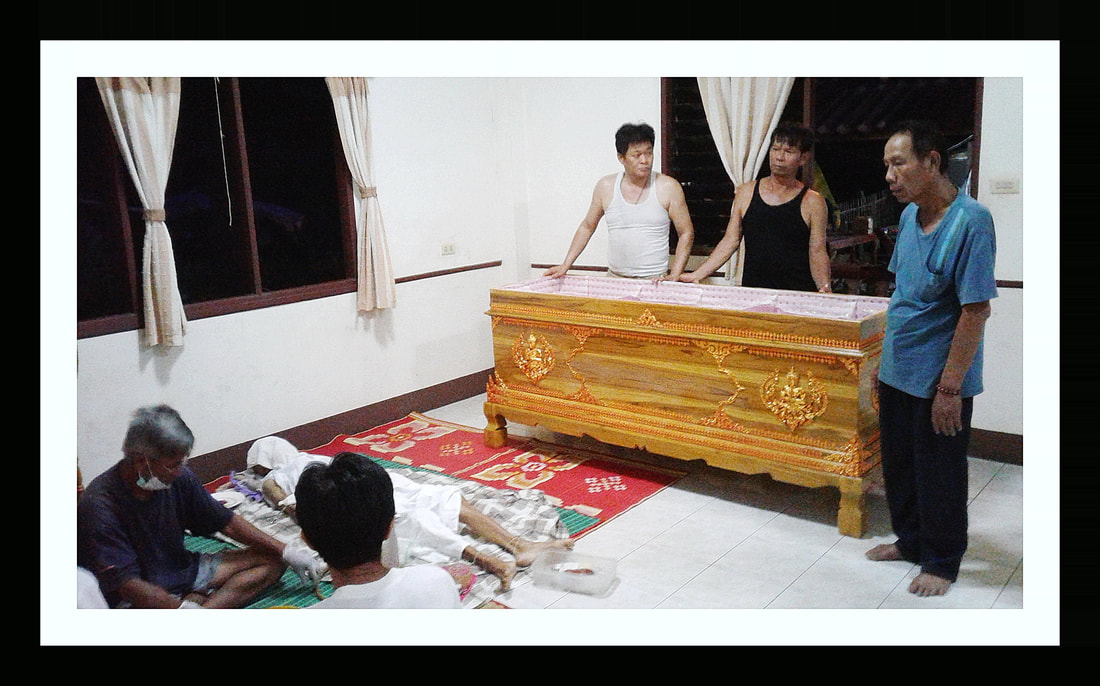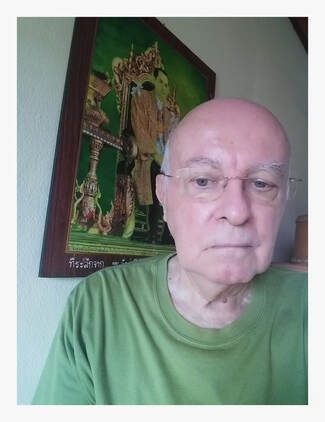|
Roman Catholic bishops in the USA are meeting to decide whether or not to permit US President Joe Biden to take communion as long as he supports legalized abortions. This would apply to all Roman Catholics, of course, not just POTUS. The New York Times reports that the Vatican has advised the bishops not to take this action, but the bishops are likely to continue the debate in their meeting anyway. They have a contingent that opposes the present Pope and his progressive stance. On theological grounds, several prominent Jesuits, however, oppose the use of sacraments as a “political” weapon. Their opposition is spurring a “This Is Not Your Table Movement” against the bishops.
Here’s my take on the theological issue, as a Presbyterian observer: 1. Weaponizing the Eucharist or any sacrament is indefensible. That is what the “This Is Not Your Table Movement” is saying. 2. Ecclesiology (the nature and role of the church) is the theological doctrine at stake here. If the Church is the body of Christ in the world today, then “the Church” is both the guardian and advocate of the sacred mysteries contained in the sacraments. To say that the Church cannot stipulate and regulate the form of those sacraments and access to them is to cast the Church aside and nullify its authority. The bishops, of course, will not do that and neither would most other theologians. 3. But it is important at this time and all the time to be alert to the possibility that the Church is in error. It has been in the past. This could be another of those times. This could be one of those times in which error is being embraced by enough of the organizational structure of the Church to indict the entire organization (in this case the Roman Catholic Church). 4. Correction from error of this type, of this magnitude, and of this effect, is a prophetic undertaking which is initiated by a call to repentance on the part of those who err. If they refuse to repent they stand in need of reprimand. If that still does not bring about repentance the Church takes still stronger action. 5. If, in the end, the Church remains adamant, there is no outside agent to enact punishment except God, the “author and finisher” of the Church and all creation. 6. This, then, brings us to the matter of legitimate protest. Can people exit the Church when they perceive the Church is unrepentantly and irremediably wrong? Of course they can, and they do. It is not an infallible sign that the people are right and the Church is wrong when people leave. But there was never, in the entire history of the Church, a time when branching off and separating was not taking place, nor was there a time when such effrontery of those leaving was not excoriated by those being left. In solemn retrospect, Christianity has spread this way. 7. Having said this, we come to the question of ecclesiastical authority in our time. It is being insisted that there is no Church (overall, capital C) that is proprietor of the sacred mysteries. Even when the sacred mysteries are symbolized as sacraments they remain available to any and all who perceive and give reverence to them. Therefore, the role and the nature of all churches are relegated to the socio-political realm. Churches are human organizations performing human, humane and humanitarian missions, albeit in honor of Christ. God is instrumental in these ministries in the same way that God is influential in every human life. 8. Is affiliation with a church valuable, then? Is it a necessity as insisted by the dogma that “outside the church there is no salvation”? Can an individual alone discover enough of the mysterious truth that encompasses life? Can life be fully realized without the support and accountability of a community of faith? For most of us the answer is that commitment to the best good and highest values will dwindle for those who refuse the kind of community found in the best churches. Fortunate, indeed, are those who connect to one like that. 9. Is the world a better place because there are Christian churches proliferating almost everywhere? Certainly there is strength in numbers. Effective action, and especially opposition to power, requires unity. A church is valuable as a strategic partner with other advocates of compassion and justice. A church that exists for the exclusive benefit of its members is not one of the best, no matter whether or not those benefits are religious and spiritual. What is the best course for the bishops? Listen to your own best theologians rather than your politicians. Be one less combatant in the devastating US culture war. The mundane world is not intimidated by our threats. It is attracted by our love. And? We are on the cusp of the greatest reformation the Church has experienced since the 16th century. The side that will emerge and be called Christian three centuries from now will be the one with roots in this century that has the most Christ-like theology. Love leads to immersion, involvement, and incarnation. Love creates allies but it also enlightens the lover to the presence of the Holy One. Theology begins where one is and asks, “Where is God in this?” It is impossible to accurately imagine that God is removed into a sublime heaven now that Christ has ascended there, and that our theology is all about how to expand that heaven into this abysmal mundus. It is ludicrous to fantasize about God caring for creatures while being remote and aloof. Theology as Jesus taught us how to do it begins in the here and now and identifies God imminently invested in this messy place. Theology asks, “What is God doing?”
0 Comments
Sirisak is one of the Rainbow Warriors here in Thailand. Last week Sirisak took on the most revered institution in the country. It went public. Below is a paraphrase translation of what appeared as a result of Sirisak’s meme a couple of days earlier at the beginning of Pride Month.
Do Not Tarnish Religion “Phra Payom” Slaps “One Who Dressed As a Monk” Wearing a Rainbow Sash Indicating Sex A Facebook posting appeared with text indicating broad-mindedness about sex, saying that everyone is whatever sex they are, and should be entitled to be ordained as a Buddhist. [The posting] included an illustration of a man dressed as a monk ordinarily would be robed. But something that attracted attention of Netizens was that he had a cloth over his shoulder that was rainbow colored. In response, “Phra Payom” who is head of a monastic division, a preacher, and social activist from Nontaburi Province warned, “That’s inappropriate. Do not tarnish religion.” Phra Payom mentioned that there are uniforms for some groups such as military, police, students, and clergy. “Who could cause confusion by wearing such clothing?” He asked, “Is that right or not? It shouldn’t have to be explained. It would be best to just not be confusing. You are free to choose what you like, or to separate into another religious sect. There are all kinds of attractive colors to choose from that one might consider beautiful. But if you are ordained you relinquish matters of beauty. We like to say everybody’s the same, why can [only] some be ordained? Why can’t I be ordained as that one is? There are many different kinds of good people, elite people, lovely people, common [low] people. Good behavior is not all the same, so don’t say that selectivity is a Buddhist corporate matter. If there were no selection there would be no Buddhism today. So do not advocate giving up the chance to be selective. If you want to set up a company and take in people indiscriminately, giving rights to one and all, take a look at how Sita rejected the Demon King. How will you govern once those you picked indiscriminately have tarnished your religion? If you are going to critique anything you have to gather complete data or ask those who are knowledgeable in that area. Otherwise you get false data in your criticism.” The one who posted on the Internet commented, “Everyone should be able to be ordained. Ordination depends on conviction [reverence] and not genitalia. LGBTIQANs+ are not sinners. Ordination as a Buddhist monk is held to be open to males. So other sexes, e.g. women, are prevented; lesbians are prevented; gays are kept out; kathoeys are excluded; intersex individuals are not allowed to be ordained as men are. “Historically women were not excluded from ordination. Permission for women’s ordination is recorded in the Traipidok. But later, women monks [ piksuni ] were prevented, using the reasoning that such ordination had been discontinued. “Ordination of banthewa บัณเฑวะก์ [translated variously as “bisexual, hermaphrodite, homosexual, gay, lesbian; eunuch] in the earliest era was permitted, but later ordination was prevented because a group of monks came to the Buddha and asked him to stop ordaining this [whole] group only because they were contrary to discipline. Preventing ordination only because people have different sex organs is a group decision. Nobody should be subjected to a general decision like that if they have done nothing wrong. “Ordination does not depend on sex organs, but on faith. Do not bring sex restrictions into it. (Thanks to Shine Wara Dhammo for this material). To say everyone should be eligible for ordination is not to say everyone should be ordained. It does not imply anybody can do just anything, or that kathoeys have higher privileges than others, e.g. that ordained kathoeys should be allowed to yell or dress as they like. But everyone should be under the same rules. Whoever breaks the regulations should endure the consequences. “Do not declare as a group that the ordination of LGBTIQANs+ will destroy religion. The issue is that everybody should be able to be ordained in the same way that everyone has equal access to religion as a human right. “In addition, if Buddhists believe that donning the saffron robes is the greatest honor one can pay to one’s mother and father because it refers to entering heaven, but if LGBTIQANs+ are prevented from ordination, does this not indicate that Buddhism is limiting, dividing, restricting, and selectively practicing who can enter the faith [and get into heaven], insofar as only males get ordained and have the ability to reward their fathers and mothers for their merit and thus helping them get into heaven? “Many people say, ‘You gay kathoeys, go reward their merit in some other way.’ The question is why are the sexes divided in matters of faith and religion? In summary, these days do we come to faith with our hearts or by way of our sex organs?” Note: this is Pride month. [Sirisak, the person who posted the meme dressed in monk’s robes] posted these pictures in the campaign to study this together in that an opposing view and pictures [of a monk denouncing trans people] had been previously circulated which generated responses pro and con. Ken Dobson’s Queer Reflection on this article: The monk is both restrained in his retort which the headline calls a “slap” and he is repeating the familiar lines that (a) it is proper and valuable for Buddhism to make selections about how the corporate organization is run, and (b) if anyone objects to those decisions they are free to set up their own organization. The monk does not address the rationale by which women are refused equality and access to ordination which they used to have, long ago. Instead, he argues that Buddhists needs rules and standards in order to survive. Sirisak, on the other hand, was first actually responding to a widely circulated story of a monk who denounced trans individuals and then all non-binary persons as “sinners.” His diatribe was an attack. Sirisak chose the opening of Pride Month to counter-attack by challenging the basic position of the Buddhist establishment in Thailand that prevents women from being ordained. That decision, Sirisak infers, was a corporate one made by an insider group and not based on defensible religious principles applying to all people. Sirisak is also clear that when the true basis for this discrimination is seen to be just a matter of who has male sex organs, then that basis will be erased and only faith will be the issue of ordination and full inclusion. As a whole, this is an excellent example of how the argument has been conducted for the past couple of decades in Thailand. The weakest point in the decision the Thai Sangha has made about ordination is that it discriminates against women without being able to come out in the open to say why it does so. The response is usually, “Well, we have to have rules or there would be chaos that would undermine everything.” The usual rebuttal is more nuanced than Sirisak’s bald “is it about sex organs or faith and reverence?” I was watching a YouTube program on how Sesame Street broke a taboo to tell children that Mr. Hooper died when the actor who played the popular character had died and would no longer appear in his store. As the YouTube account cut to a clip where Mr. Hooper’s son told Big Bird that “Mr. Hooper died,” the closed-caption text said “Mr. Hooper passed.” Twice more in ten minutes, voices on clips from the past said “died” and the text on the bottom of the screen said “passed”.
The app producing the closed-caption text had been programed to substitute “passed” whenever a speaker said “died”. Why did it do that? It seems the taboo has returned in our time. I have been noticing how infrequently death is mentioned in on-line chats and even in newscasts. It is my impression that “dead, died, death” are almost never used to refer to a particular individual. Even impersonal references talk of “casualties” and “victims” whenever possible. I confess to being a bit mystified by the current use of “passed”. “He passed.” Not even “passed away”. There is an insistence about it that includes people across a broad theological spectrum. The summer I became a professional writer (a cub reporter for our local newspaper) my editor-mentor told me, “Say ‘died’ in those obituaries.” Mr. Ridgeway was a no-nonsense editor. Clarity and accuracy were required in a newspaper of record which he believed was the job of a local newspaper. That, however, was decades ago. I don’t know how this use of “passed” is fast becoming one of those linguistic trends that require conformity. So I asked my Facebook friends and got a few responses. An Episcopal deacon responded, “… if one thinks of our life here as a journey, the term ‘passed’ or ‘passed on’ emphasizes a passage to the greater life (or a different existence), rather than death, which signals a finality and an end. I’ve heard objection to ‘she passed’ as if it is some kind of denial. Not for me….” A Russian linguist commented, “Passed is more metaphorical, not so direct. Almost the same as calling a toilet a bathroom.” A sociologist from the Philippines wondered, “”Fear of death? Death as a bad word?” An American pastor responded, “ ‘Jesus passed for our sins.’ Nope. Not. No.” An American Christian colleague commented, “There is a biblical basis for Christian use of the term as death represents a transition of states.” A journalist friend observed, “In contemporary terms, it seems to me that people are afraid to speak of death and dying, as it cannot and will not happen to themselves. When I see the term [“passed”] I often think that those who use it are unwilling or unable to face the reality of death.” My son-in-law from Tennessee said, “I know that it is a Southern euphemism and has always been the preferred way to refer to ‘a passing’ in the South.” An immigrant to Australia remembered, “At school, we used to say, He kicked the bucket.” I am grateful for these comments, but I still don’t know where this shift is coming from, although I’m quite sure we’re more direct and less ambiguous about death here in Northern Thai villages. Perhaps it’s too soon to know why the Internet world is so circumspect, but I sense pressure behind a trend that will eventually make “he died” thought of as insensitive and then incorrect. I think I’ll have died by then. Few topics about education are as arguable as how history is taught. When I was going to school “American History” taught in the USA typically began with Columbus’s voyages of discovery. Then, having skipped the thousands of years in which civilizations had flourished on the two large American continents, the accounts talked about the activities of vicious Spanish conquerors as if they were heroes. From then on “American History” was all about what the US colonists did to “settle” from coast to coast, wiping out and dispossessing entire Native American populations in the process.
Today is June 6, the 77th anniversary of “D-Day” the largest amphibious invasion in world history, and the beginning of the end of NAZI Germany’s conquest of Europe. The entire scope of Operation Overlord was too complex to include in a short course on European History, or even 20th Century History. So writers of school books have to be brief. Why did Germany collapse? It comes down to Soviet Russia overwhelming the Third Reich from the East and the USA, Great Britain, and Canada (with 12 other nations contributing forces) from the West – from the Beaches of Normandy. The rest was prelude, it seems, and the end was foregone. D-Day was where it happened. This same week people in the USA noticed, most for the first time, that 100 years ago the USA bombed itself in the only full-scale attack upon itself since the very “uncivil” War Between the States. The eradication of the most prosperous Black city in the USA, Tulsa, Oklahoma on June 1, 1921 raises the question, “Why Was It Forgotten?” Why have history books skipped over this massacre, and for that matter, glossed over the entire history of lynching and subjugation of non-white people? As a sometime designer of courses of study, this matter plagues me. I know how it is done. From the very beginning it is about limitations. The guiding issue is “What outcome is to be achieved?” What do you want to happen to the students? It this history course about enhancing loyalty, patriotism, and civic pride (as many of them are)? Or is it about expanding appreciation for the evolution of culture and the streams that flow into the present? Or is it to increase dissatisfaction with the present and stir up revolutionary change? Whatever the objective is, it faces limitations. You are limited to 45 classroom hours. There are only so many hours of instruction, and if you’re writing a textbook only so many pages. What are you to put into them? Your students are another limitation. You cannot “tell them everything” about anything. That, you must try to do in your PhD thesis. But not in the classroom, not even with a thousand-page textbook backing you up. Nowadays we have history channels, social media groups, YouTube clips, and much more to fill in the gaps. But there are limitations to what you can learn here, too. Not all of this mass of information is unbiased or even factual. Your own interests guide you to certain troves of history and help you scroll past others. That history education you had in school and college was only the beginning. Pity the teachers who were trying their best to get you ready to face the future as you stepped out of the past into it. They were limited. Even Will Durant was wrong in believing that all of Western Civilization could be recounted in 11 volumes. Goodness, Will and Ariel, you just barely got started. |
AuthorRev. Dr. Kenneth Dobson posts his weekly reflections on this blog. Archives
March 2024
Categories |
| Ken Dobson's Queer Ruminations from Thailand |
|




 RSS Feed
RSS Feed
